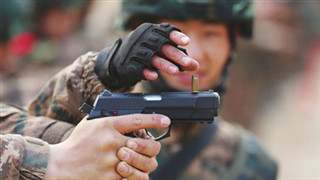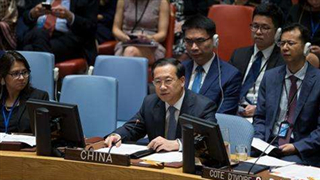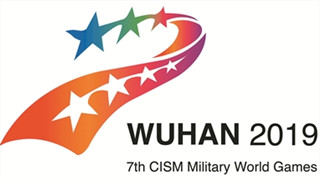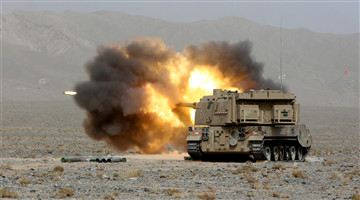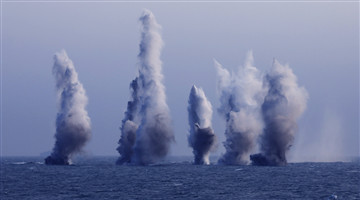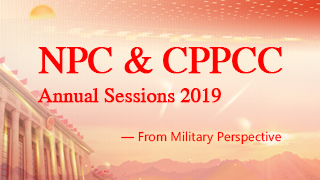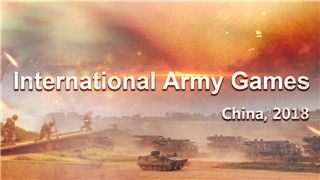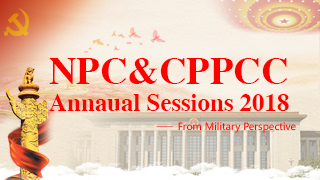By Sun Chenghao
The crackdown on Iran has continued to escalate the tensions between the United States and Iran recently. On April 8, the U.S. government designated Iran’s Islamic Revolutionary Guard Corps (IRGC) as a “foreign terrorist organization” (FTO). This designation is the first time that the U.S. has ever labeled the armed forces of another government as an FTO. Iran responded soon after by announcing the U.S. Central Command and its affiliated forces in West Asia as “a terrorist group” and the U.S. government as the “sponsor of terrorism.”
The United States is blamed for the mutual blacklisting. This triggered different opinions among its domestic parties: U.S. President’s National Security Affairs Assistant John Bolton and Secretary of State Mike Pompeo who take tough line against Iran have voiced support for Mr. Trump’s decision, while senior military officials including Chairman of the Joint Chiefs of Staff Joseph Dunford, together with government agencies like the Central Intelligence Agency (CIA), have opposed this move, fearing such a move may not hit Iran economically but incurring retaliation. To ensure the maximum economic and political pressure on Iran, the Trump administration has finally determined to adopt the move. From the U.S. perspective, Iran’s IRGC is not only a military force, but also plays an important role in the political and economic fields. Mr. Pompeo claimed that the IRGC controls 20 percent of Iran’s economy.
TheTrump administration’s move will further isolate Iran. And it also implies that the U.S. will take a series of measures against Iran, including prohibiting companies and individuals both in the U.S. and other countries from providing any funding and resources for the IRGC, and freezing any assets of the IRGC in the U.S. If any member of the IRGC intends to go abroad, the destination country also has the right to arrest and extradite him/her to the U.S.
From a diplomatic perspective, the core strategy of the Trump administration in the Middle East is to follow a “pro-Israel but anti-Iran”. The new designation will significantly expand the scope and scale of the U.S.“maximum pressure” on the Iranian regime in an effort to change the regional military situation, as well as present a“lavish gift” to Israeli Prime Minister Benjamin Netanyahu, who prepares for the national election.
From Mr. Trump’sperspective, the move also serves the 2020 United States presidential election. Since 2016, Mr. Trump has always regarded the Iranian nuclear issue as the touchstone of demonstrating that he is “as good as his word”. He has announced the U.S. withdrawal from the Iranian nuclear deal and proposed a very harsh“12-point requirements” for Iran.
If the United States continues to challenge Iran’s “bottom line”, the outcome will be the elevation of their disputes in the Middle East and will exacerbate instability in the Middle East. This is especially true for the Iranian nuclear issue: the U.S. has always believed that Iran was on the way of “time for space”, did not recognize the efforts made by Iran, and demanded other allies to work together to exert pressure on Iran. On regional issues, the United States has shown great dissatisfaction with Iran’s support for the Syrian government and has been trying to curb Iran’s expansion of regional influence. However, Iran believed that the Gulf countries should pursue collective security and reject military intervention from external great powers.
Now, the United States has raised a difficult question for itself. Since other countries have maintained normal diplomatic relations with Iran, their military exchanges are also part of inter-state exchanges. If they continue to contact with the IRGC, the U.S. may be caught in a dilemma: whether the sanctions would trigger opposition from other countries? If not, it may potentially set a precedent for other countries and even the allies to arbitrarily violate the U.S. ban on terrorism. Such a dilemma may be a bitter pill for the U.S. to swallow.
(The author is an assistant researcher at the American Institute of China Institute of Contemporary International Relations)

